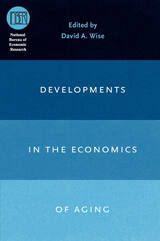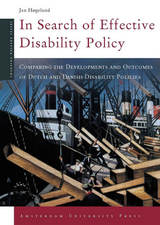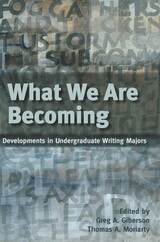




The chapters, all of which are new to this edition, focus on key features of the political systems that have emerged following the transition to postcommunist rule and the enlargement of the European Union through 2006. Full attention is given to the pattern of events in individual nations, but the main emphasis is on the framework of politics across the region—constitutions, leadership, parliaments, parties, and electoral systems—and the process of politics, as it is revealed in political participation, civil society, economic change, and the quality of democratic government within and beyond the region.
Clearly written and well supported with references and suggestions for further reading, Developments in Central and East European Politics 4 is the ideal guide to the process of change in a group of states that were formerly modeled on the Soviet Union but are now a distinctive and varied presence within a continent that has been redefining its boundaries, its values, its economic systems, and its international allegiances.
Contributors. Judy Batt, Dirk Berg-Schlosser, Sarah Birch, Heather Grabbe, Tim Haughton, Krzysztof Jasiewicz, Petr Kopecký, Paul G. Lewis, Frances Millard, Cas Mudde, D. Mario Nuti, Mark Pittaway, Ray Taras, Stephen White, Andrew Wilson, Kataryna Wolczuk

The chapters, all of which are new to this edition, focus on key features of the political systems that have emerged following the transition to postcommunist rule and the enlargement of the European Union through 2006. Full attention is given to the pattern of events in individual nations, but the main emphasis is on the framework of politics across the region—constitutions, leadership, parliaments, parties, and electoral systems—and the process of politics, as it is revealed in political participation, civil society, economic change, and the quality of democratic government within and beyond the region.
Clearly written and well supported with references and suggestions for further reading, Developments in Central and East European Politics 4 is the ideal guide to the process of change in a group of states that were formerly modeled on the Soviet Union but are now a distinctive and varied presence within a continent that has been redefining its boundaries, its values, its economic systems, and its international allegiances.
Contributors. Judy Batt, Dirk Berg-Schlosser, Sarah Birch, Heather Grabbe, Tim Haughton, Krzysztof Jasiewicz, Petr Kopecký, Paul G. Lewis, Frances Millard, Cas Mudde, D. Mario Nuti, Mark Pittaway, Ray Taras, Stephen White, Andrew Wilson, Kataryna Wolczuk

Central and East Europe is a large, extremely diverse region, encompassing full-fledged EU members—the Czech Republic, Hungary, Poland, Estonia, Latvia, Lithuania, Slovenia, and Slovakia, followed later by Bulgaria and Romania—as well as nations of the Western Balkans that are progressing at various speeds along the EU path—Croatia, about to join; Macedonia, Montenegro and Serbia, with EU candidate status; and Albania, Bosnia and Herzegovina, and Kosovo, struggling to keep up. The region also includes the East European states of Ukraine, Belarus, and Moldova. In this collection, leading authorities examine how these heterogeneous nations have fared since the collapse of communism. The contributors look at executive leadership, elections and voter behavior, parliamentary systems, political parties, citizen engagement in civil society, the effects of neoliberalism, and the quality of life in postcommunist democracies. Most of the essays are new to this edition; the rest have been thoroughly updated.
Contributors. Judy Batt, Sarah Birch, Nathaniel Copsey, Terry Cox, Rick Fawn, Tim Haughton, Krzysztof Jasiewicz, Paul G. Lewis, Frances Millard, David M. Olson, Mitchell A. Orenstein, Andrew Roberts, Ray Taras, Stephen White, Andrew Wilson

Central and East Europe is a large, extremely diverse region, encompassing full-fledged EU members—the Czech Republic, Hungary, Poland, Estonia, Latvia, Lithuania, Slovenia, and Slovakia, followed later by Bulgaria and Romania—as well as nations of the Western Balkans that are progressing at various speeds along the EU path—Croatia, about to join; Macedonia, Montenegro and Serbia, with EU candidate status; and Albania, Bosnia and Herzegovina, and Kosovo, struggling to keep up. The region also includes the East European states of Ukraine, Belarus, and Moldova. In this collection, leading authorities examine how these heterogeneous nations have fared since the collapse of communism. The contributors look at executive leadership, elections and voter behavior, parliamentary systems, political parties, citizen engagement in civil society, the effects of neoliberalism, and the quality of life in postcommunist democracies. Most of the essays are new to this edition; the rest have been thoroughly updated.
Contributors. Judy Batt, Sarah Birch, Nathaniel Copsey, Terry Cox, Rick Fawn, Tim Haughton, Krzysztof Jasiewicz, Paul G. Lewis, Frances Millard, David M. Olson, Mitchell A. Orenstein, Andrew Roberts, Ray Taras, Stephen White, Andrew Wilson


Contributors. David P. Conradt, Russell J. Dalton, Kenneth Dyson, Klaus H. Goetz, Simon Green, Adrian Hyde-Price, Charlie Jeffery, Stephen Padgett, William E. Paterson, Wolfgang Rüdig, Martin Seeleib-Kaiser, Gordon Smith, Roland Sturm

Contributors. David P. Conradt, Russell J. Dalton, Kenneth Dyson, Klaus H. Goetz, Simon Green, Adrian Hyde-Price, Charlie Jeffery, Stephen Padgett, William E. Paterson, Wolfgang Rüdig, Martin Seeleib-Kaiser, Gordon Smith, Roland Sturm


Contributors. Alfred B. Evans, Zvi Gitelman, Gordon Hahn, Margot Light, Michael McFaul, Sarah Oates, Thomas F. Remington, Peter Rutland, Richard Sakwa, Robert Sharlet, Darrell Slider, Judy Twigg, Stephen White, John P. Willerton

Contributors. Alfred B. Evans, Zvi Gitelman, Gordon Hahn, Margot Light, Michael McFaul, Sarah Oates, Thomas F. Remington, Peter Rutland, Richard Sakwa, Robert Sharlet, Darrell Slider, Judy Twigg, Stephen White, John P. Willerton

Contributors. Alfred B. Evans, Henry E. Hale, P. Hanson, Margot Light, N. Manning, J. Mathers, Michael McFaul, Sarah Oates, Thomas F. Remington, C. Ross, Richard Sakwa, Darrell Slider, G. Smith, Stephen White, John P. Willerton

Contributors. Alfred B. Evans, Henry E. Hale, P. Hanson, Margot Light, N. Manning, J. Mathers, Michael McFaul, Sarah Oates, Thomas F. Remington, C. Ross, Richard Sakwa, Darrell Slider, G. Smith, Stephen White, John P. Willerton

Contributors. Vladimir Gel'man, Henry E. Hale, Philip Hanson, Kathryn Hendley, Margot Light, Jennifer Mathers, Ian McAllister, Sarah Oates, Thomas F. Remington, Graeme Robertson, Richard Sakwa, Darrell Slider, Svetlana Stephenson, Stephen White, John P. Willerton

Contributors. Samuel Charap, Valentina Feklyunina, Henry E. Hale, Philip Hanson, Kathryn Hendley, Marlene Laruelle, Ellen Mickiewicz, Ben Noble, Thomas F. Remington, Bettina Renz, Ora John Reuter, Graeme Robertson, Richard Sakwa, Darrell Slider, Stephen White, John P. Willerton

The number of Americans eligible to receive Social Security benefits will increase from forty-five million to nearly eighty million in the next twenty years. Retirement systems must therefore adapt to meet the demands of the largest aging population in our nation’s history. In Developments in the Economics of Aging, David A. Wise and a distinguished group of analysts examine the economic issues that will confront policy makers as they seek to design policies to protect the economic and physical health of these older Americans.
The volume looks at such topics as factors influencing work and retirement decisions at older ages, changes in life satisfaction associated with retirement, and the shift in responsibility for managing retirement assets from professional money managers of traditional pension plans to individual account holders of 401(k)s. Developments in the Economics of Aging also addresses the complicated relationship between health and economic status, including why health behaviors vary across populations and how socioeconomic measures correlate with health outcomes.

Elements, Government and Licensing covers three principal domains of phonological representation: melody and segmental structure; tone, prosody, and prosodic structure; and phonological relations, empty categories, and vowel-zero alternations. Theoretical topics covered include the formalization of Element Theory, the hotly debated topic of structural recursion in phonology, and the empirical status of government.
In addition, a wealth of new analyses and empirical evidence sheds new light on empty categories in phonology, the analysis of certain consonantal sequences, phonological and non-phonological alternation, the elemental composition of segments, and many more. Taking up long-standing empirical and theoretical issues informed by the Government Phonology and Element Theory, this book provides theoretical advances while also bringing to light new empirical evidence and analysis challenging previous generalizations.
The insights offered here will be equally exciting for phonologists working on related issues inside and outside the Principles and Parameters program, such as researchers working in Optimality Theory or classical rule-based phonology.




From Kant to Kierkegaard, from Hegel to Heidegger, continental philosophers have indelibly shaped the trajectory of Western thought since the eighteenth century. Although much has been written about these monumental thinkers, students and scholars lack a definitive guide to the entire scope of the continental tradition. The most comprehensive reference work to date, this eight-volume History of Continental Philosophy will both encapsulate the subject and reorient our understanding of it. Beginning with an overview of Kant’s philosophy and its initial reception, the History traces the evolution of continental philosophy through major figures as well as movements such as existentialism, phenomenology, hermeneutics, and poststructuralism. The final volume outlines the current state of the field, bringing the work of both historical and modern thinkers to bear on such contemporary topics as feminism, globalization, and the environment. Throughout, the volumes examine important philosophical figures and developments in their historical, political, and cultural contexts.
The first reference of its kind, A History of Continental Philosophy has been written and edited by internationally recognized experts with a commitment to explaining complex thinkers, texts, and movements in rigorous yet jargon-free essays suitable for both undergraduates and seasoned specialists. These volumes also elucidate ongoing debates about the nature of continental and analytic philosophy, surveying the distinctive, sometimes overlapping characteristics and approaches of each tradition. Featuring helpful overviews of major topics and plotting road maps to their underlying contexts, A History of Continental Philosophy is destined to be the resource of first and last resort for students and scholars alike.


"Essential for all those who are interested in the study of risk assessment of violence. It is particularly important for the researcher in this area. . . . For the clinician who must make violence assessments it is important reading as well."—Stewart Levine, Bulletin of the American Academy of Psychiatry and the Law

Contributors to the volume address a range of vital questions for undergraduate programs, including such issues as the competition for majors within departments, the job market for undergraduates, varying focuses and curricula of such majors, and the formation of them in departments separate from English. Other chapters discuss the importance of flexibility, consider arguments for a rhetorical or civic discourse core for the writing major, address the relationship between rhetoric and composition majors, and review the role of multiliteracies in the major.
The field of composition has not come to a consensus on the shape, content, or focus of the undergradutate major. But as individual programs develop and refine their curricula, one thing has become clear: we must think about them in ways that go beyond our particular circumstances, theorize them in ways that secure their place on our campuses and in our discipline for years to come. What We Are Becoming is an effort to do just that.
READERS
Browse our collection.
PUBLISHERS
See BiblioVault's publisher services.
STUDENT SERVICES
Files for college accessibility offices.
UChicago Accessibility Resources
home | accessibility | search | about | contact us
BiblioVault ® 2001 - 2024
The University of Chicago Press









